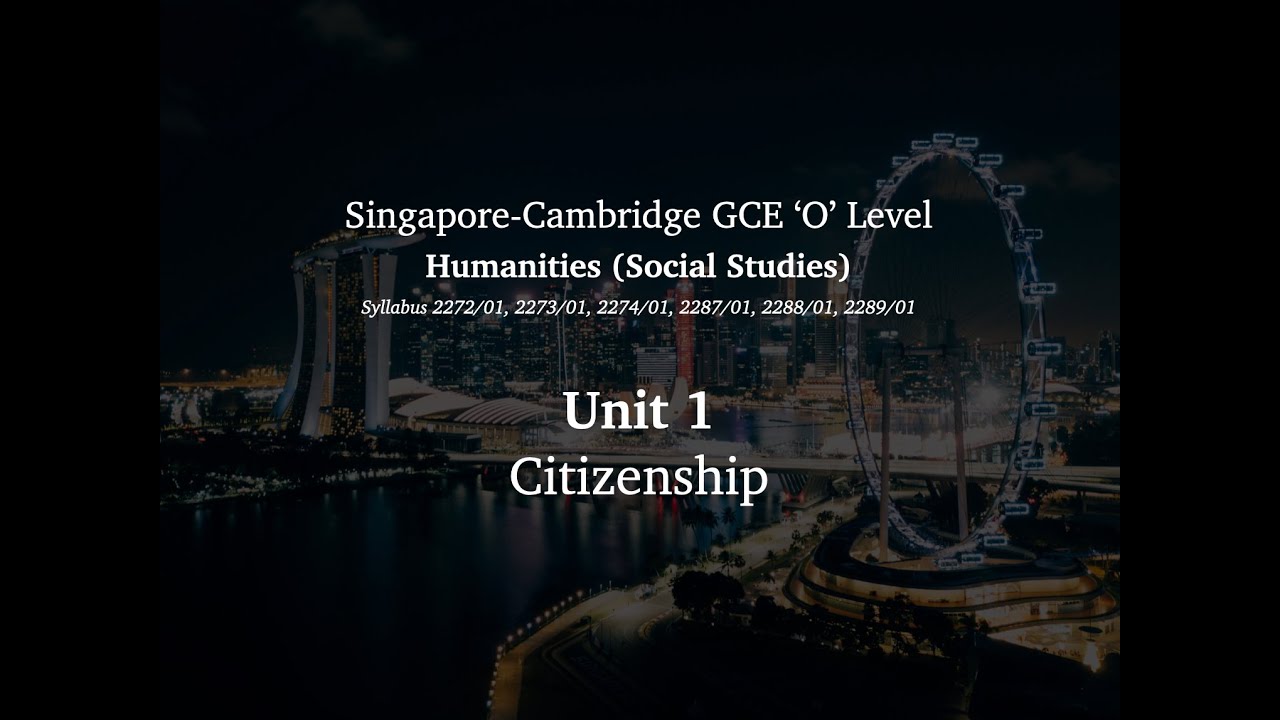Posisi, Tugas, dan Tanggung Jawab sebagai Warga Negara
Summary
TLDRThis educational transcript delves into the concept of citizenship in Indonesia, exploring how citizenship status is determined, the responsibilities and rights of citizens, and the characteristics of a good citizen. Key topics include the principles of ius sanguinis (citizenship by descent) and ius soli (citizenship by birth), dual citizenship, and the importance of adhering to laws, respecting diversity, and contributing to societal well-being. The script emphasizes the traits of a good citizen: knowledge, skills, and strong values, while encouraging learners to reflect on and apply these concepts in their daily lives.
Takeaways
- 😀 Understanding the position and responsibilities of citizens is crucial for becoming a good member of the nation.
- 😀 Citizenship status is determined by laws and not automatically granted based on residence or birth alone.
- 😀 There are different principles for determining citizenship: ius sanguinis (bloodline), ius soli (birthplace), and dual citizenship (bipatride).
- 😀 Ius sanguinis grants citizenship based on parents' nationality, regardless of the place of birth.
- 😀 Ius soli grants citizenship based on the country of birth, even if the parents are from another nationality.
- 😀 Dual citizenship can occur when a person is born in a country with ius soli but has parents from a country with ius sanguinis.
- 😀 Statelessness can occur when a child is born in a country that does not recognize their parents' nationality and does not grant citizenship based on birth location.
- 😀 Naturalization allows foreigners to apply for citizenship based on specific procedures and requirements.
- 😀 A good citizen is characterized by knowledge, skills, and strong values, forming the basis of a good character.
- 😀 Key duties of citizens include respecting laws, paying taxes, maintaining security, and fostering social welfare and harmony in the country.
Q & A
What determines a person's citizenship status?
-A person's citizenship status is determined by the laws of the country they are in. In Indonesia, it is based on the legal rules set by the government.
What is the principle of 'ius sanguinis'?
-'Ius sanguinis' is a principle that determines citizenship based on descent, meaning that a person automatically becomes a citizen of a country if one or both of their parents are citizens of that country, regardless of the place of birth.
Can a person be a citizen of more than one country?
-Yes, a person can have dual citizenship if they are born in a country that practices 'jus soli' and have parents from a country that practices 'ius sanguinis'. In this case, the individual can hold citizenship from both countries until they reach a certain age and are required to choose one.
What does 'jus soli' mean in terms of citizenship?
-'Jus soli' is a principle where citizenship is determined by the place of birth. Anyone born in a country that follows this principle automatically becomes a citizen of that country, regardless of their parents' nationality.
What happens if a child is born in a country that follows 'jus soli' but has parents from a country with 'ius sanguinis'?
-In this case, the child could hold dual citizenship, being a citizen of both the country where they were born (following 'jus soli') and the country of their parents (following 'ius sanguinis').
What is 'bipatride' or dual citizenship?
-Bipatride, or dual citizenship, occurs when an individual holds citizenship in two different countries at the same time due to differing citizenship laws, such as one country following 'jus sanguinis' and another following 'jus soli'.
Can a person ever be stateless?
-Yes, it is possible for a person to be stateless. For example, if a child is born to foreign parents in a country that practices 'ius sanguinis', but not in a country that practices 'jus soli', the child might not be recognized as a citizen by either country.
What is 'naturalization' in the context of citizenship?
-Naturalization is the process by which a foreign national can apply to become a citizen of a country, subject to specific legal requirements and procedures.
What are some key characteristics of a good citizen according to the transcript?
-A good citizen is someone who is knowledgeable, skilled, and has strong values. They are dedicated to maintaining societal values, fulfill their duties and responsibilities, and contribute to the well-being of the community.
What are some of the responsibilities of a good citizen in Indonesia?
-Responsibilities of a good citizen in Indonesia include respecting laws and order, following basic education provided by the government, paying taxes, maintaining public security, respecting human rights, and promoting national unity and environmental sustainability.
Outlines

このセクションは有料ユーザー限定です。 アクセスするには、アップグレードをお願いします。
今すぐアップグレードMindmap

このセクションは有料ユーザー限定です。 アクセスするには、アップグレードをお願いします。
今すぐアップグレードKeywords

このセクションは有料ユーザー限定です。 アクセスするには、アップグレードをお願いします。
今すぐアップグレードHighlights

このセクションは有料ユーザー限定です。 アクセスするには、アップグレードをお願いします。
今すぐアップグレードTranscripts

このセクションは有料ユーザー限定です。 アクセスするには、アップグレードをお願いします。
今すぐアップグレード5.0 / 5 (0 votes)






